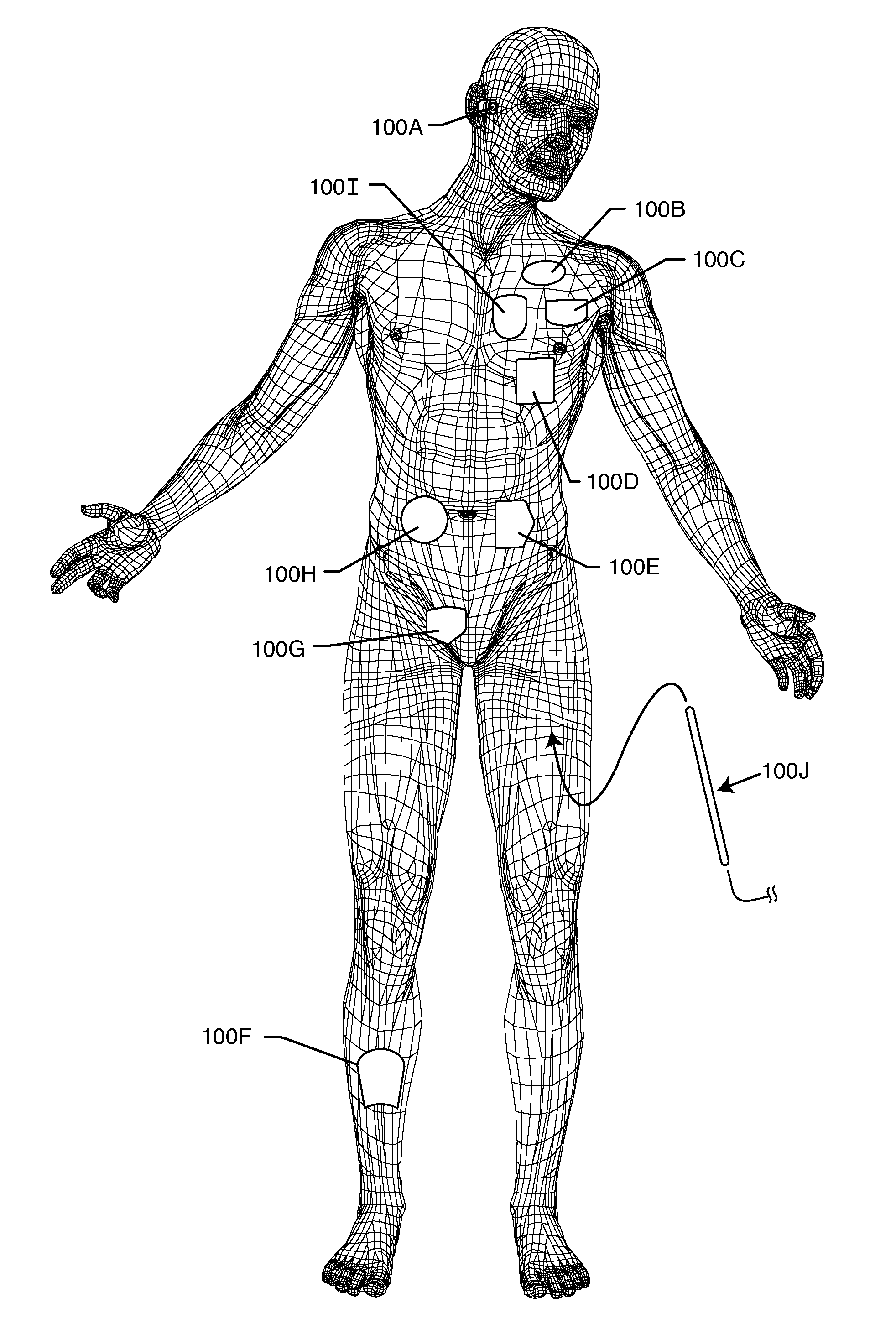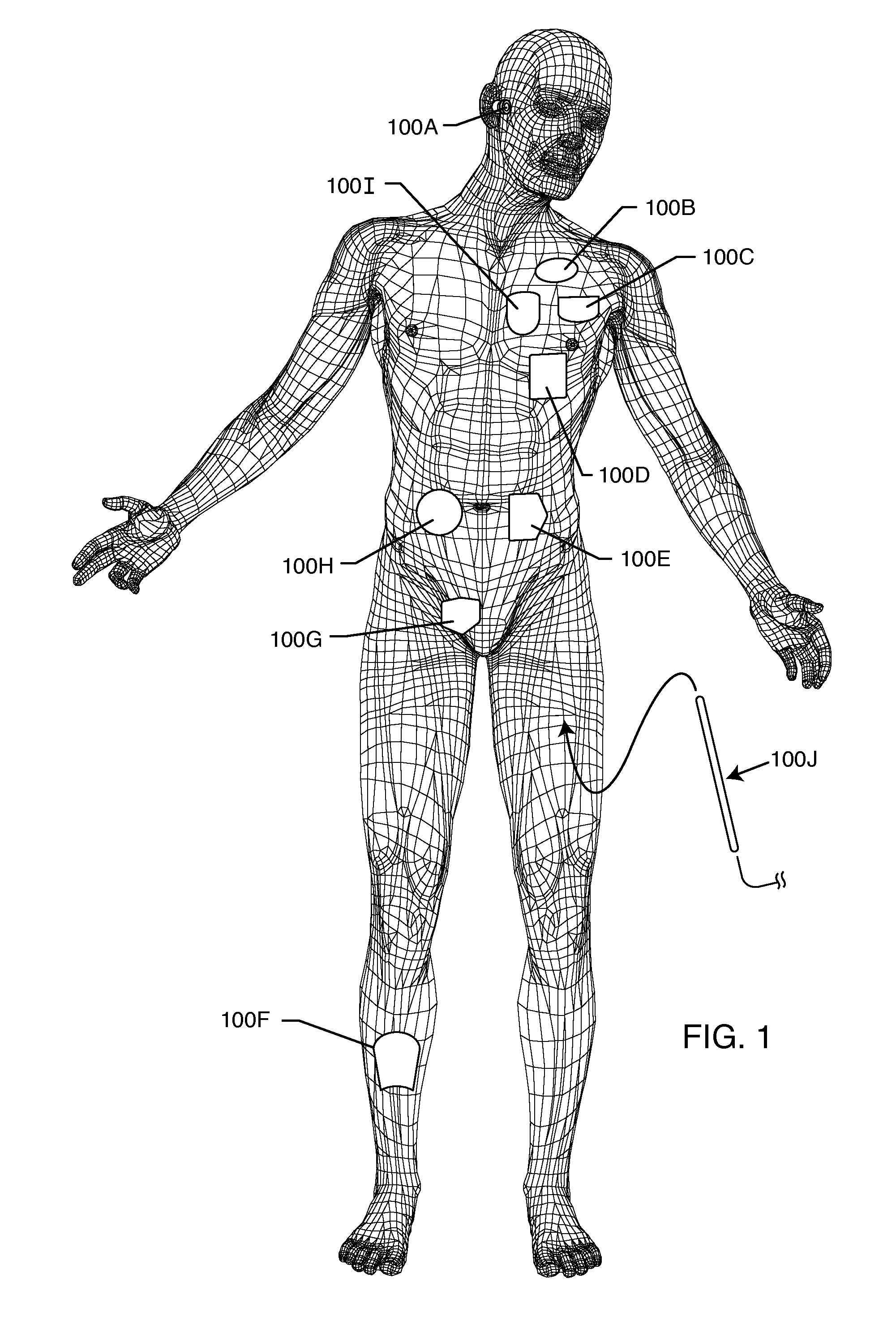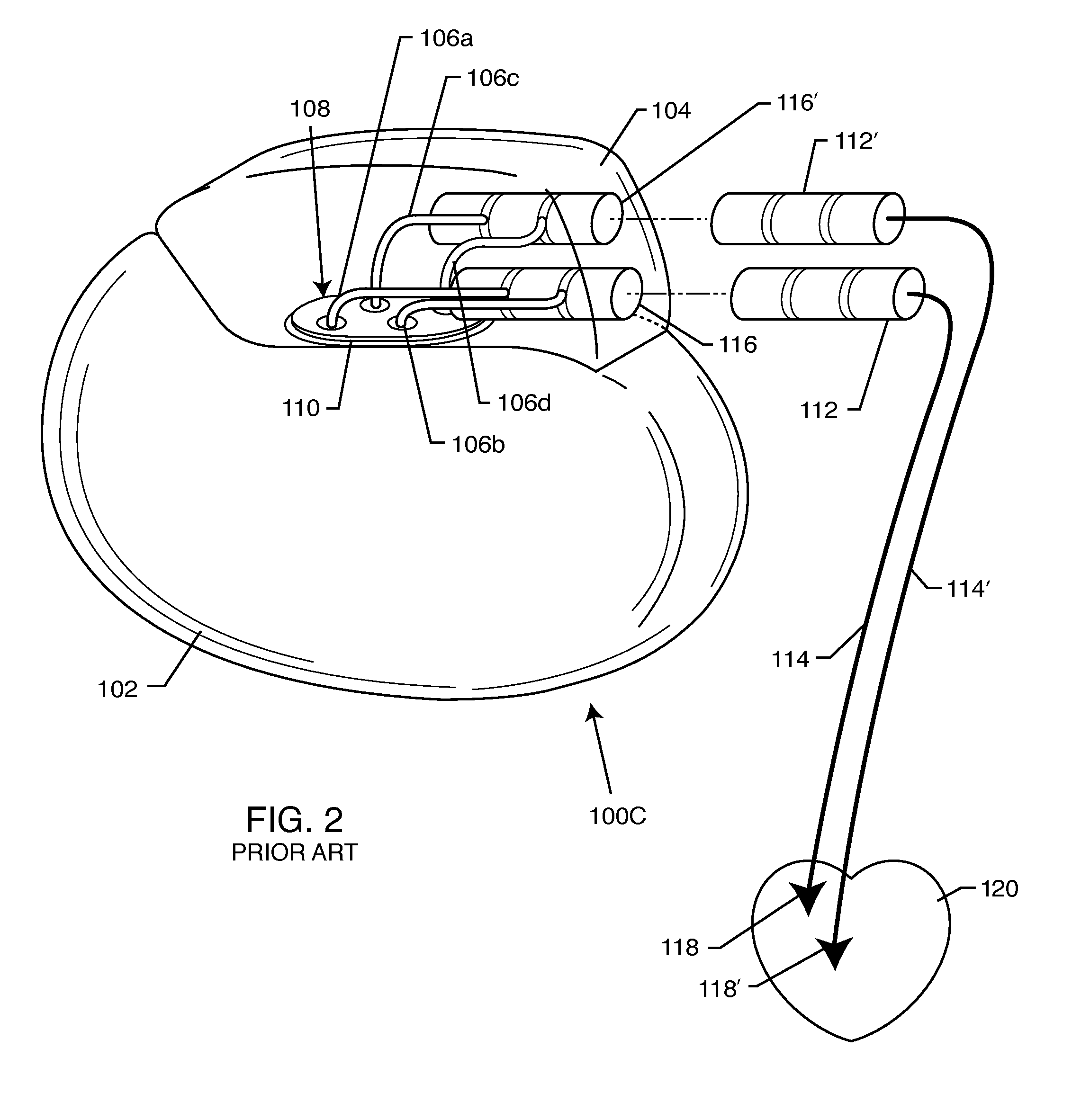Shielded network for an active medical device implantable lead
a shielded network and active medical device technology, applied in the field of high frequency energy induced onto implantable leads, can solve the problems of overheating of said lead or its associated electrode, brain damage or multiple amputations, overheating of the associated interface with body tissue, etc., and achieves low resistance loss, high equivalent series resistance, and high resistance loss
- Summary
- Abstract
- Description
- Claims
- Application Information
AI Technical Summary
Benefits of technology
Problems solved by technology
Method used
Image
Examples
Embodiment Construction
[0108]As shown in the drawings for purposes of illustration, the present invention relates to a system for RF shielding of a passive component or network disposed along the length of implanted leads of active medical devices (AMDs). In particular, the RF shielding is to shield a passive inductor or inductive component in the presence of high power electromagnetic field environments, such as the RF pulsed fields produced by a clinical MRI scanner. In a broad sense, the present invention comprises an active medical device system including an implanted lead having RF shielded inductors or passive network components including inductors. The implanted lead may be coaxial, rectangular, flat or other geometries. US 2009 / 0243756 incorporated herein by reference. Furthermore, the implanted lead may consist of a number of internal conductors, such as a bipolar lead for cardiac pacemaker channel or even an eight or sixteen conductor spinal cord stimulator implanted lead. This is also known as ...
PUM
 Login to View More
Login to View More Abstract
Description
Claims
Application Information
 Login to View More
Login to View More - R&D
- Intellectual Property
- Life Sciences
- Materials
- Tech Scout
- Unparalleled Data Quality
- Higher Quality Content
- 60% Fewer Hallucinations
Browse by: Latest US Patents, China's latest patents, Technical Efficacy Thesaurus, Application Domain, Technology Topic, Popular Technical Reports.
© 2025 PatSnap. All rights reserved.Legal|Privacy policy|Modern Slavery Act Transparency Statement|Sitemap|About US| Contact US: help@patsnap.com



